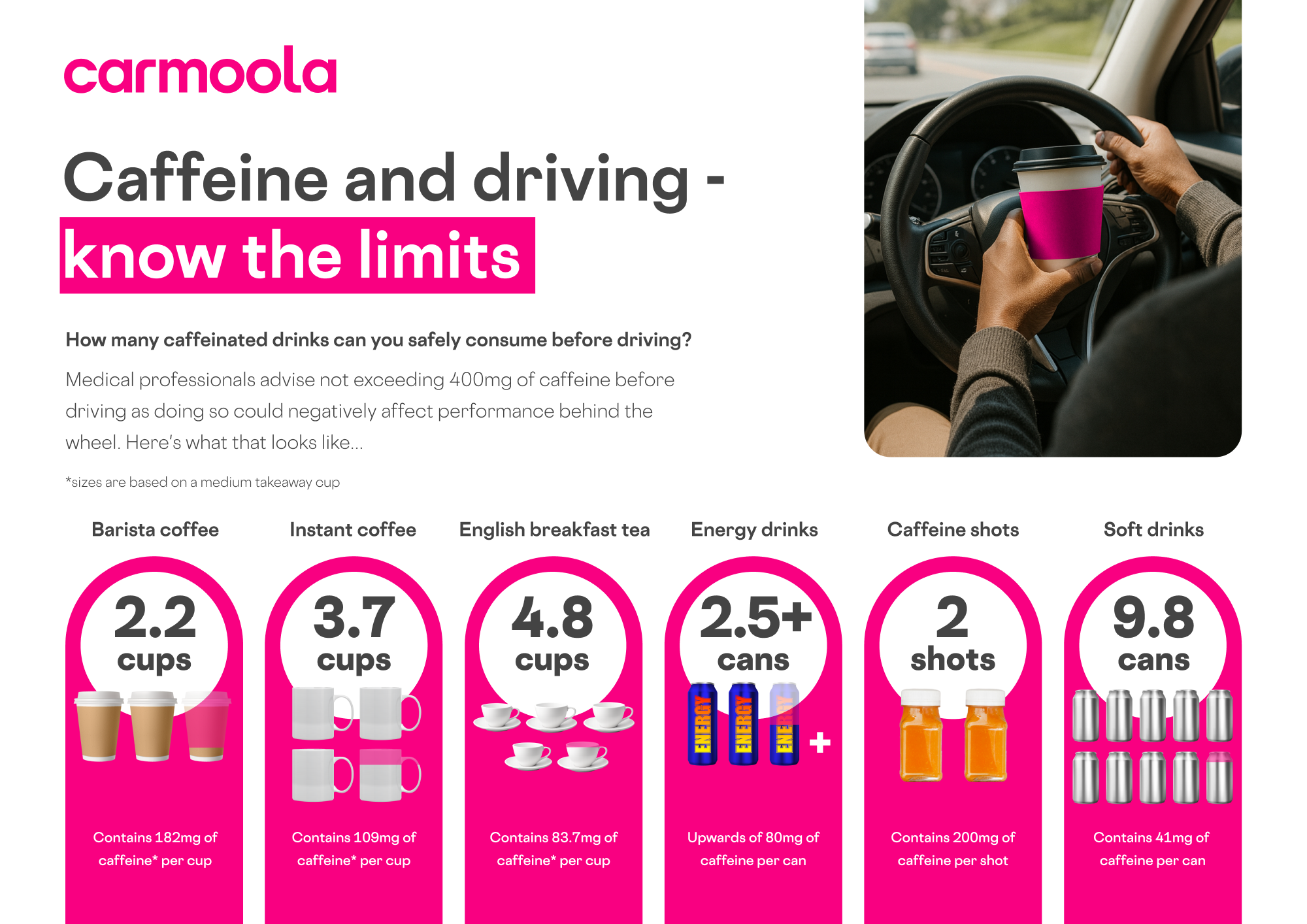Thinking about loading up on coffee to make it through your next road trip? Think again.
An August study by Censuswide for Carmoola’s “Curbing The Caffeine” campaign found that excessive caffeine consumption before driving can impair performance.
Surveying 2,000 U.K. residents over the age of 16 about their caffeine intake and daily driving behaviors, the report estimated that 11 million U.K. drivers exceed “safe” daily caffeine limits.
Working with Dr. Tim Mercer, a GP partner at TJ & SE Mercer Healthcare Ltd, their research shows that a moderate caffeine intake, up to 300 mg, can boost alertness, but going over that can actually backfire.
“While the NHS advises that 400 mg of caffeine per day is a safe upper limit for most healthy adults, exceeding these levels can lead to restlessness, palpitations and anxiety,” Mercer said in a news release.
“For motorists, it’s vital to stay calm and in control - too much caffeine can cause jitteriness and even urinary urgency, both of which can be distracting behind the wheel, where your full attention should be on the road,” he added.
Almost half of 17 to 24-year-olds (48 percent) reported experiencing caffeine-related side effects while driving, with 16 percent encountering them often.
Men are twice as likely as women to notice these effects (11 percent vs. 5 percent), the study found.
Overall, 5 percent of drivers, increasing to 9 percent among 25 to 34-year-olds, say they cannot drive properly without caffeine.
Like all good things, caffeine is okay in moderation, Mercer said.
“Caffeine can make you feel more alert, but over-reliance can lead to dependency and withdrawal,” he said, advising drivers to stay hydrated, eat regularly, and consider decaf coffee, which can provide a mental boost without caffeine’s side effects.
Carmoola put together a handy guide to caffeine levels in popular drinks, pulling info from sources like BBC Good Food, Monster Energy, Red Bull, and Nutrition X, and standardizing the caffeine content per milliliter so it’s easy to compare.
They used Costa Coffee’s sizing chart as a reference for a medium drink since it’s the U.K.’s most popular coffee chain in 2025, whose large cappuccino packs 400 mg of caffeine.

Other studies show the same effects
A 2020 Loughborough University study found that truck drivers consuming large amounts of coffee and energy drinks reported more crashes and had poorer overall health than those with lower caffeine intake.
Researchers split more than 3,000 truck drivers into two groups: a high-intake group who drank about one caffeinated beverage per day, and a low-intake group who consumed five or more caffeinated drinks daily, averaging 7.5 per day.
Researchers split participants into two groups: a low-caffeine group of drivers who drank about one caffeinated beverage per day, and a high-caffeine group who consumed five or more caffeinated drinks daily, averaging 7.5 per day.
Truck drivers in the high-caffeine group were involved in more accidents than those who consumed less, researchers found.
The study also showed poorer overall health than the low-caffeine group. High-caffeine participants smoked and drank alcohol more, exercised less, had unhealthier diets, slept less, felt sleepier during the day, and were more likely to engage in risky or aggressive driving.
Most expensive coffee? Dubai launches coffee that costs $1,000 a cup
Starbucks sells 60% stake in China business in $4 billion deal
Bank of England must better address climate risk to tackle inflation, WWF says
British scientists create new gel which can fix ‘unrepairable’ damage to your teeth
The US might lose its longstanding ‘measles elimination’ status
Pfizer COVID-19 vaccine sales drop 25% after confusing government guidance







